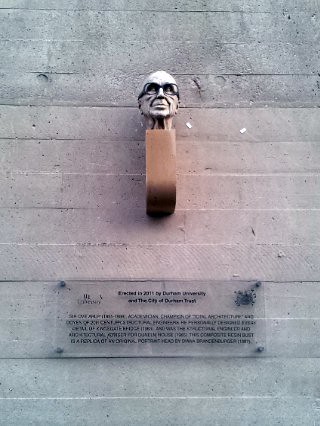Leaving home under an early-morning starry sky and up over the misty, snowy Pennines to Sheffield, I wasn’t sure what to expect from the Blackboard Enhanced Assessment and Feedback day to which I was travelling. I had a sketched outline of the themes for the day ahead but not much more, namely that we would engage in some way with:
Assessment and feedback – an institutional perspective
- Examination of key drivers and challenges (reputations, quality of process, quality of data, legal, business efficiencies, risk etc.)
- Placing use cases on a confidence/effectiveness model
- Highlight relevant Blackboard solutions
Assessment and feedback – innovation and organisational change
- Identifications for drivers for change
- Gap analysis of practice and stakeholder experiences
- Prioritisation of opportunities for change
- Highlight relevant Blackboard solutions
This kind of workshoppy day from Blackboard was something I hadn’t experienced before, so I was propelled by curiosity as much as that it seemed relevant to the work that our team are currently leading on e-submission and e-feedback at Liverpool. What I got was a useful day of frank discussion and sharing of experiences, ideas and commonalities, which was mostly reassuring, with colleagues from other institutions in the kind if depth you don’t often get. This is especially useful for a sense of the bigger picture in HE, to talk about the differently badged or described but largely similar activities, structures and strategies that are top of our agendas at the moment, e-submission and e-marking being one of Liverpool’s current strategic TEL focus. One universal and rapidly-emerging area of concern that became evident on the day was a need for a variety of programme-level views of assessment activity in the VLE for academic and administrative staff and students. This is a long-requested feature from Blackboard usergroups that’s time has come with the adoption of e-submission and e-marking policies across the sector of late and I hope this was the main takeaway message for the Blackboard team.
The event was run by our regional Blackboard Customer Success Team, in partnership with the BB North user group, recognising a need for a more extensive exploration of particular issues that get raised at user group meetings, where the format doesn’t allow fuller discussion. Whilst advertised as intended for senior leaders, learning technologists, TEL managers and academic staff, the majority attending today were learning technologist types. It was instructive to hear that on the previous day at Edinburgh a couple of PVCs had attended, sending some very positive signals about the depth of an institutions’ engagement and intent with the actual tools that students, academic and professional service staff use as a part of their everyday life at the University.
Music, sweet music…
Our first activity was to introduce ourselves telling the room the first piece of music that we had ever bought. An astonishing array of formats and first loves was paraded, from Now compilation tapes to Avril Levigne downloads, from Osmonds vinyls to Busted CDs. Blackboard’s Alan Masson and Gillian Fielding all admitted to their first purchases, but I’ll spare their blushes here. Top-trumping all these, however, was Blackboard’s Steve Hoole, whose overnight Novotel stay featured a vinyl deck (remember these, kids?) and a selection of Sheffield synth heaven albums to spin the night away.
Structure of the sessions
The morning and the afternoon were structured in a similar way so that we would first ‘brainstorm’ our thoughts in groups on a set of e-assessment themes, then work together on some specific ideas from those and bring something interesting back to the room. We’d finally end with a discussion of the potentially useful tools in Blackboard that could be a part of the thinking for some of these. I initially thought this last element was going to be a sales pitch but it was pleasingly nuanced in that the Blackboard team wanted to hear stories of how people are using these tools, where they’re working well and what the gaps are. A very clear point made more than once was that the recent Blackboard activity in developing the assignment tool to offer dual marking, moderation and anonymous marking had been excellent but it now seemed that the Blackboard focus had moved on from this, whilst the toolset still needs work, that there had only been one iteration of the process. Also that this process of close consultation should be constantly repeated for other areas as our needs are constantly evolving, not just for assessment.
Morning Session – what’s needed to enhance assessment and feedback practice?
For the morning, we’d thought about quality, processes and workflows and where the opportunities for enhancement lay. We chucked all of our ideas at the first Padlet below. You’ll find all of the issues that we have encountered in the course of our work as learning technology developers and as part of the University’s EMA project, from how to handle video submission and feedback, to combining some functionality of Blackboard assignments (group tools, double marking, staged release of feedback, etc) with that of Turnitin assignments (Originality Checking, GradeMark, offline marking). In fact, this was another big ask on the day, that Turnitin and Blackboard align/integrate their products in ways that will help us, as you will gather from some of the posts in this Padlet.
What leapt out at me was a so-far un-encountered issue at Liverpool of needing a read-only external examiner access to modules. In some institutions administrative staff are packaging up content and assignments into a special section of a module, which only the external has access to, and making the rest of the module inaccessible to them. This is to meet an anxiety around externals potentially changing grades and altering content, but it costs hours of administrative time, essentially duplicating what’s already in the module, so re-introducing at a later stage of the assessment cycle serious administrative burden that the electronic submission process had originally taken away from the front end. What’s needed is a read-only access enrollment level, which is another development idea for the Blackboard team to add to the suggestions box.
Moving on to the next activity in groups again, we were tasked with listing and describing up to five assessment and feedback enhancements that would have significant benefits for the listed stakeholders and the degree to which it would require resource. This photo shows our effort…

…and for those who aren’t adept at reading the handwriting of people who spend their whole day attached to a keyboard our five enhancements (all pretty standard) were:
- External Examiner Access – read-only access for external examiners or a similar idea.
- Student Assessment Journey – programme level views of student assessment activity for students and staff
- Flexible innovative assessment – making the assessment and feedback tools at all points in Blackboard, not just for assignments, so that you can start thinking about using any tool for assessment purposes.
- Double marking – further work on the current functionality to take it to a robust, fully-usable level.
- Programme Level Assessment – looking at assessment practice across entire programmes and thinking about programme-level learning outcomes.
Hearing back from the rest of the room we discussed in more depth some of the already described above (external examiner access, programme-level views of assessment) and the Blackboard team promised to send round some case study examples of good practice for external examiner processes using Blackboard tools. In a discussion around whether and how institutions were using the Delegated Grading functionality, which was designed for UK HEIs, again the Blackboard team said they would gather together some case studies of where these are being used well. The feeling from the room was that this kind of functionality should be available across all assessment tools rather than locked to a single tool.
A few other interesting discussion points to end the morning session were that many institutions are thinking at programme level about replacing traditional assignment assessment. Video assignments and feedback are rapidly on the rise but also causing headaches as infrastructure and policy isn’t keeping up.
Afternoon Session
As I said, the afternoon session followed the same structure. So our post-lunch digestif activity was another Padlet , this time thinking about innovation and new practices that would enhance assessment and feedback in our institutions. I’ll let the Padlet do the talking so scroll around to see the ideas. I was interested in things like students being able to select the kinds of assessment that they wanted to do, and learners and academics developing assessment literacies through feedback dialogue and feed-forward as a continuous process.
As in the morning, next was a group task, where we were asked to think “aspirationally” about how we imagined assessment could look, if we had a free rein. What change or innovation in assessment and/or feedback would have significant impact and how would it benefit learners, tutors, courses and institutions? Essentially we were encouraged to go wild in the aisles of transformative assessment practice.
Our group went Back to Basics and offered the transformative potential of programmes where learning outcomes were mapped to assessment. Well, someone had to. Other groups had some tidy, Tomorrow’s World ideas including:
- An assessment wizard which built the kind of assessment you wanted with one view for staff and students (no more multiple systems or at least hiding these from you).
- A tool that surfaced programme level assessment data.
- A tool for personalised feedback and assessment routes – feedback raises flags on further help students can get and other staff can see that in later assessments.
And as per the morning session the Blackboard team led a discussion on how their products could work to do some of these things. One thing they did bring back to my attention was the Goals and Outcomes system which has a new dashboard view of the data and I think it would be opportune to review this in the light of programme development work that is heading the way of our team, as this could present an opportunity for offering programme-level views of progress through modules.
The end
So not a sales day, not your regular product roadmap/roadshow day, this represented a deeper dive into Electronic Management of Assessment, including the Blackboard tools that can be a part of that that environment. The Blackboard team wanted the day to be about sharing practice, raising awareness of what Blackboard tools we have already and encouraging us to get the best we can out the Blackboard tools and products that you have and I think this was more than achieved on the day. Thanks to the team and to the Bb North UserGroup for arranging and hosting. I had some very useful conversations (which is pretty much usual for the BB North User Groups meetings) and plenty from all of the above to take back for the project board overseeing the implementation of an e-submission policy at Liverpool.
What music did I first buy? The Muppet Show album. And I’ve never needed any other in my life…
Dan





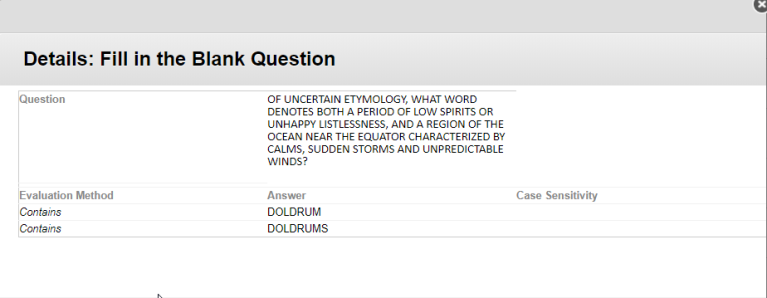




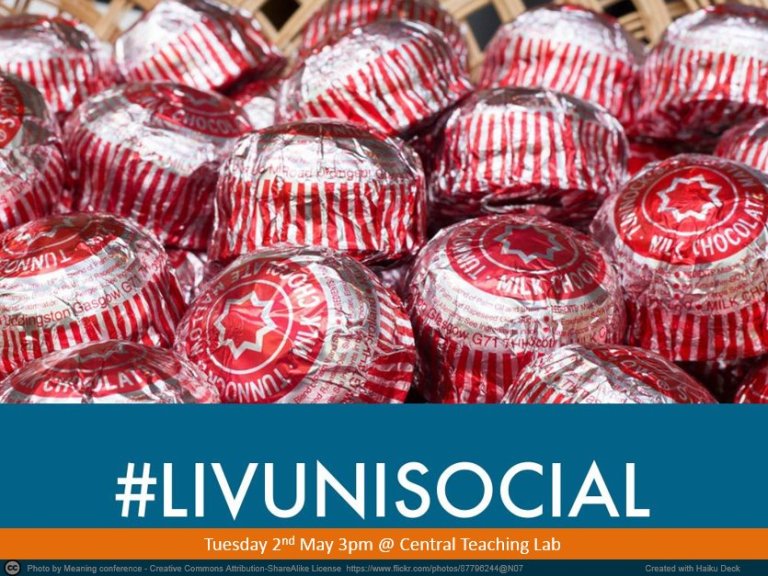
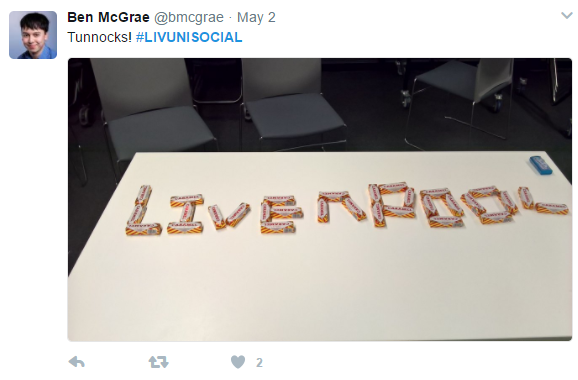
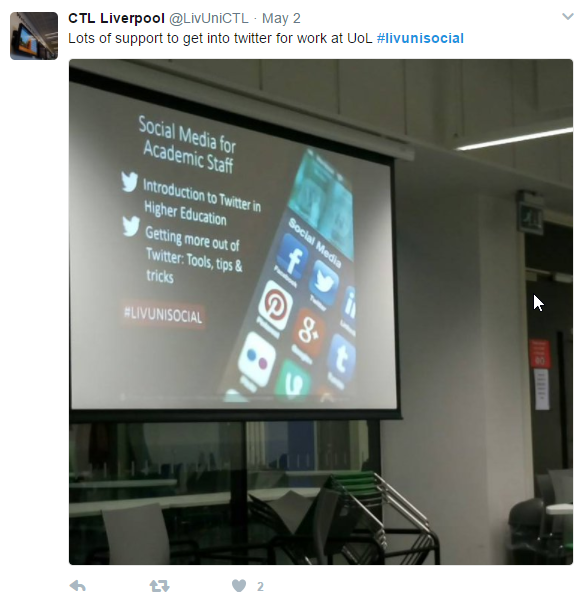
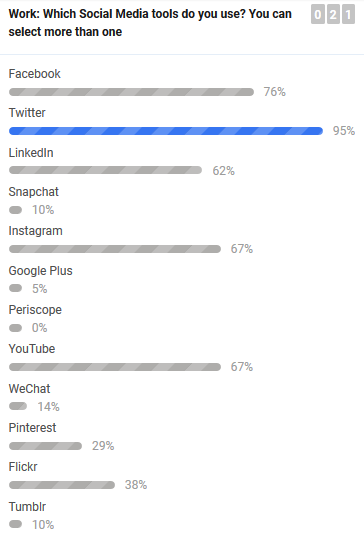

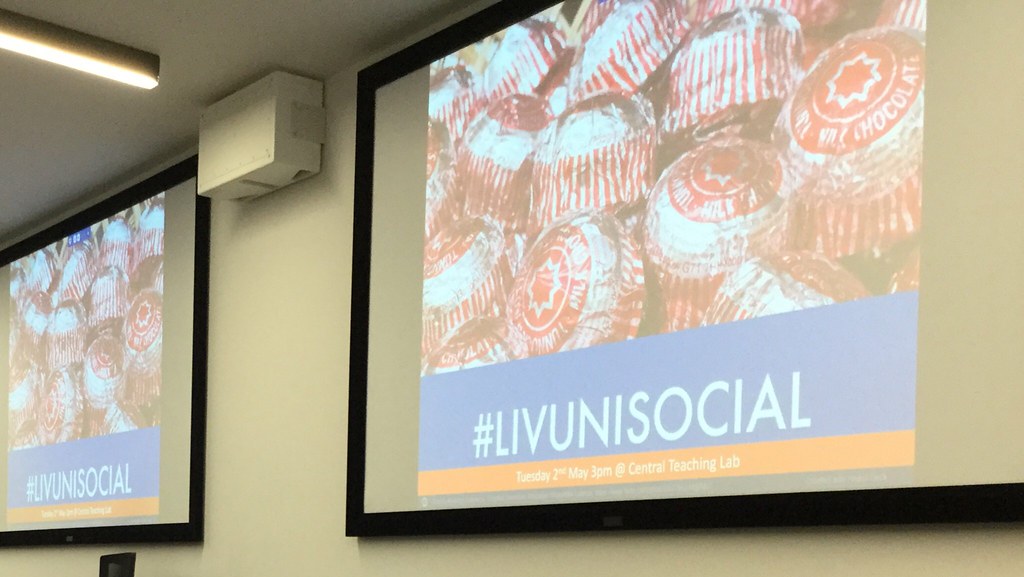

 ‘Brilliant, engaging, authentic – thank you!’
‘Brilliant, engaging, authentic – thank you!’